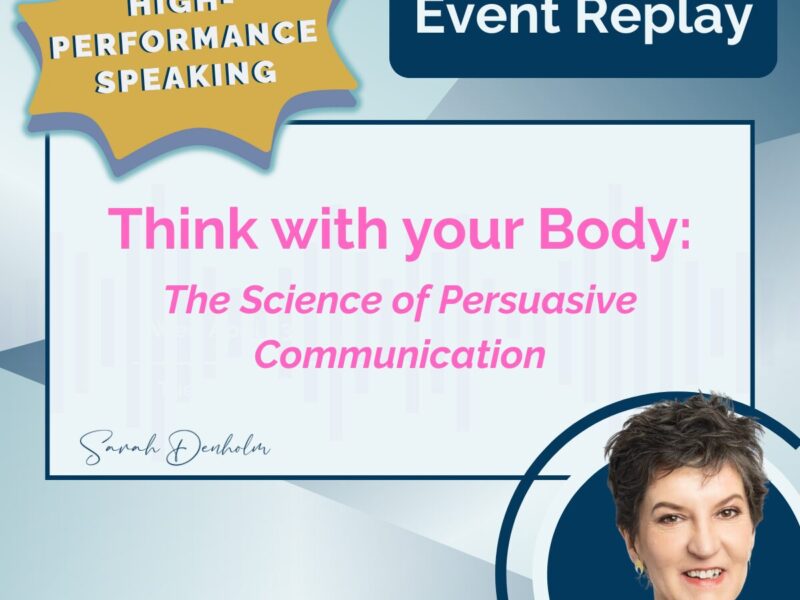
Picture this: go back a few years, to when I’ve just completed my first ever keynote presentation, where I talked to a group of emerging corporate leaders about life lessons and resilience. It’s gone well, I get great feedback, and when I leave the group I’m on a high, totally exhilarated by the experience.
I stop at the supermarket on the way home (exotic finish to my big debut, right?!) and am in the checkout queue when I’m suddenly swept with anxiety. I start to think about what I’ve just discussed with the group, including personal anecdotes, and I become really stressed out, and can’t wait to get home, to feel safe again.
While I don’t physically end up in the foetal position, mentally I’m not far off this state! And it takes me a couple of days to really pull out of it.
So what went wrong?
In those two days of reflection after the keynote presentation, I realized that I’d missed a step along the way while I was working on overcoming my speaking fears. I’d looked at some mental and physical aspects of why I was afraid to speak to groups; I’d practised breathing, and pausing, and doing visualizations, and they’d all helped.
But I hadn’t gone deep enough to realize what my biggest fear was.
What I was truly afraid of was being ‘visible’, being ‘bigger’ in the world; actually putting my head above the parapet and being a leader (how ironic, considering I was speaking to a group about leadership – but isn’t that often how it works?). Being visible, and everything that entails: the responsibility that comes with the territory. The likelihood – no, let’s be honest, the certainty – of being publicly challenged on my opinions.
I simply hadn’t thought through properly, what being that visible would entail.
I was lucky, in that my mini-meltdown happened after the keynote presentation, not during it, or as I stood up to speak. I’ve known a couple of musicians who’ve frozen during a performance, fled the stage and never performed again. (In over 20 years of performing professionally as a musician, I know that we all have the momentary urge to flee on a bad day!)
What’s the lesson here?
What I’ve learned from my episode is this: you don’t have to overcome your fears. You simply have to truly know what you’re afraid of. Otherwise those fears have the potential to blindside you when you’re in a vulnerable position, like speaking in front of a group.
There will come a point if you stretch yourself, (and everybody’s level is different) when you come to the very edge of your comfort zone – and remember that a comfort zone is a state of mind, not a true reflection of who you are.
And when you’re on that edge, you need to know, to be intimately familiar with, your fears. If you are, you then have the choice in that moment to contract or expand. To honour your fear and move forwards anyway, despite it. Or to say “no, I’m not yet ready because…” and to step back. There’s another day.
It’s not about overcoming; it’s about honouring, and not fighting your fears.
I read a great quote recently that may help you with this perspective. From The War of Art by Steven Pressfield:
“The amateur believes he must first overcome his fear: then he can do his work. The professional knows that fear can never be overcome. There is no such thing as a fearless warrior, or a dread-free artist.”
There’s a comfort in that. We don’t need to overcome our fears, it’s not possible anyway; we’re human. We just need to know what those fears are, and be willing to honour them.




